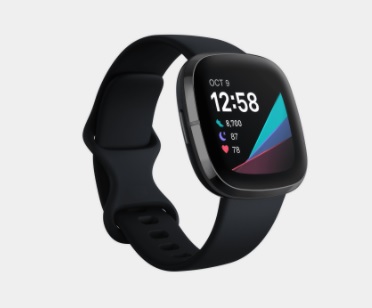When a connected watch replaces a MasterCard

Fibank (First Investment Bank) will now allow its MasterCard customers to make payments from a Fitbit connected watch. The Bulgarian bank thus strengthens its partnership with MasterCard and its model based on the democratization of digital wallets.
FACTS
- Fibank customers with Mastercard cards will now have the ability to make payments using their Fitbit connected watches.
- They will be able to:
- add their debit or credit cards to Fitbit Pay (the long-standing contactless payment device developed by U.S. wearable device maker Fitbit),
- use a compatible Fitbit device to pay for purchases on contactless EFTPOS terminals.
- A simple press of the watch's left side button authorizes a payment near a compatible contactless EFTPOS terminal.
- A PIN code can also be set to further secure the transaction.
- Fitbit Pay is currently available on a number of wearable device models, including the Fitbit Sense, Fitbit Versa family of connected watches, Fitbit Ionic, Fitbit Charge 4 and Fitbit Charge 3 Special Edition.
CHALLENGES
- Consolidate its pioneer status: Fibank was the first bank in its country to offer contactless payments through Fitbit Pay, playing on the similarity of its name with that of the American technology company. Its joint announcement with MasterCard thus represents an optimization of services rather than a real innovation. Today, Fibank is the only Bulgarian bank to offer mobile payment services that are compatible with ApplePay, GPay, GarminPay and FitbitPay.
- Respecting distanciation measures: Fibank also uses the health argument to justify the interest of its new offer, arguing that contactless digital payments represent an additional barrier to the spread of Covid-19, unlike cashless currencies for example.
MARKET PERSPECTIVE
- This partnership also comes at a time when the two American payment schemes are developing their capabilities in the field of biometrics. Last April, Mastercard announced a partnership with FinGo, the world's first biometric identity and payment authentication platform, which will enable FinGo to integrate the MPSG tokenization service. Visa will also provide a biometric identification solution to Abu Dhabi Islamic Bank (ADIB) that will enable its customers to verify their identity through facial recognition and fingerprints.
- The announcement of the partnership with MasterCard also comes on the heels of Fibank's partnership for a similar use case with Visa.
- This strategy of the Bulgarian bank illustrates a latent trend. For many years now, payment initiatives via smartwatches and other wearable devices have been the subject of work and realization.
- However, their breakthrough and mass adoption by the general public is still pending, despite the positioning of the biggest players in the field.
- In waves, initiatives continue to appear on the global market, illustrating the fact that this deployment continues in several forms and tends towards a slow but continuous democratization.
